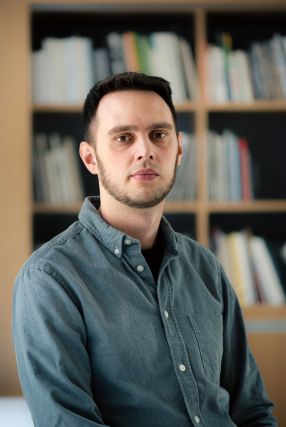‘exhibition’
Eszter Szőnyeg-Szegvári
… was awarded the Ernő Kállai Art Critic Scholarship, in the framework of which she focused on the exhibition activities and international relations of the Council of Applied Arts (1955-1975). She began to work in the Data Archives of the Museum of Fine Arts – Hungarian National Gallery in 2015. As a museologist at the KEMKI Archive and Documentation Centre (ADK), she is mainly focused on the processing of the archives of the Lectorate of Fine and Applied Arts. Her research interests include …
Zsófia Beke
… she has been published in the periodicals Új Művészet, Műértő and Balkon, as well as in exhibition catalogues. She has frequented artists’ colonies and edited publications. Her fields of specialisation include art theory, the theories of space and perception, and crossovers between the image and three-dimensional space.
Imre Kiss
… Photography Program of the Faculty of Arts at the University of Kaposvár, (2018). He worked as an exhibition coordinator at Mai Manó House and then at acb Gallery, where he was responsible for the background work for exhibitions and art fairs. In 2018, he was awarded a grant by the Association of Hungarian Photographers, and became a member of the Studio of Young Photographers (FFS). He has been working at KEMKI since 2023; his main responsibilities include digitalising collection …
Dóra Halasi
… archiving media (video and audio digitalization). Participation in projects: Krisz-Krasz exhibition and conference (PPKE-BTK, 2004). Crosstalk Video Art Festival (2008, 2011 ) – presentations about the video archive of Artpool LOST, FOUND, MADE at Art Market, Budapest, 28/11/2013 – organizer: 7x8 curatorial conversations. Artpool: Aktives Archiv zeitgenössischer Kunst in Ungarn (symposium), Bremen (2017) Art Archives Exchange. Educational Strategies for …
Zsófia Kókai
… region, financed by the Visegrad Fund. In 2022, she curated Lili Agg and Veronika Romhány’s exhibition entitled Unfold in Unknown Waters, held at the U10 Gallery in Belgrade. Her most recent curated solo exhibition was Ivor Almásy: Growth Spurt, at the Tér-kép Gallery in 2023.




